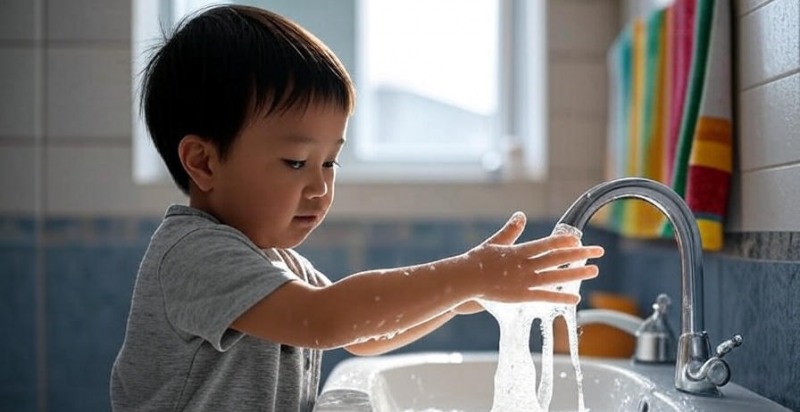South Korea Faces Rising Hand, Foot, and Mouth Disease Cases in Young Children, August 2025
KDCA data from the 33rd week of 2025 (August 10–16) show an incidence rate of 26.7 suspected HFMD cases per 1,000 people—a sharp increase from 1.5 per 1,000 in late May (21st week). The increase is most notable among infants and children aged 0–6 years, with a rate of 36.4 per 1,000, compared to 7.1 per 1,000 for those aged 7–18 years.
HFMD, an acute viral infection caused by enteroviruses, spreads through bodily fluids such as saliva, nasal discharge, blister fluid, or feces, and through contaminated surfaces like toys or doorknobs. Typical symptoms include vesicular rashes on the hands, feet, and inside the mouth, along with fever, fatigue, loss of appetite, vomiting, and diarrhea. Most cases resolve within 7 to 10 days, but rare complications—including meningitis, encephalitis, and paralysis—highlight the need for vigilance.

The KDCA recommends immediate medical consultation for high-risk cases: infants under 6 months, children unable to stay hydrated, or those with fever lasting more than two days. Parents are advised to keep children with suspected HFMD away from daycare or public places until fully recovered.
Childcare facilities are urged to enforce strict hygiene measures, such as disinfecting toys, play equipment, and doorknobs regularly, and ensuring children wash their hands before meals and after restroom use.
“Preventing HFMD requires consistent hygiene practices like handwashing and surface disinfection,” said Seung-kwan Lim, KDCA director. “Children with symptoms should see a doctor promptly and stay home from daycare until fully recovered.”
Lim Hye Jung, medi·K TEAM press@themedik.kr
Headlines
-
 Healthcare
Healthcare
Finding a Lump in Your Breast: Why It’s Not Always Cancer and What to Do Next
-
 Healthcare
Healthcare
As Winter Bites, Pet Kneecaps Slip: The Hidden Threat of Patellar Luxation in Dogs and Cats
-
 Wellness
Wellness
Korean Herbal Tea Culture: A Wellness Tradition for Body and Mind
-
 Healthcare
Healthcare
How to Counteract Caffeine’s Effects for Better Sleep
-
 News
News
Celltrion Launches Aptozma Biosimilar in U.S. Market: 35% Price Reduction and Blue Cross Coverage for Autoimmune Treatment
-
 Healthcare
Healthcare
Blue Light: Is It Really a Threat to Your Eyes and Health?
-
 Healthcare
Healthcare
The Hidden Health Risks of Your Showerhead: Why Regular Cleaning Matters
Doctors & Hospitals
-
 Healthcare
Healthcare
Eczema: Blending Conventional Relief With Korean Herbal Medicine for Lasting Skin Health
-
 Healthcare
Healthcare
Warts: Beyond Simple Removal—Focus on Immunity for Lasting Relief
-
 Healthcare
Healthcare
AI-Powered Smartphone Tool Opens New Path for Early Autism Screening in South Korea
-
 News
News
Korean Surgeon Pioneers Remote Bladder Cancer Surgery Training Using Da Vinci 5 Platform
-
 Healthcare
Healthcare
Myocardial Infarction Risks Surge in Fall: How to Protect Your Heart
-
 Healthcare
Healthcare
Innovative Korean Acupuncture Therapy Offers Hope for Acne Scar Treatment
-
 Healthcare
Healthcare
Thyroid Surgery and Recovery: Essential Post-Operative Care Guide






